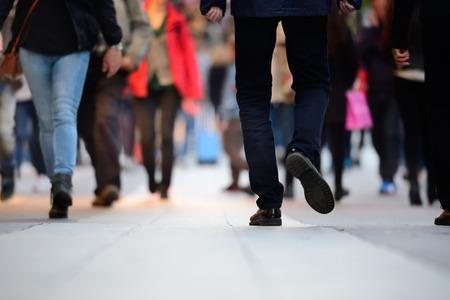When you think about it, there are some clearly identifiable dangers to your foot health, such as blunt trauma and sports injuries. But did you know that some of your everyday habits might be posing risks as well? While some are a bit more obvious than others, we encourage you to review the following risk factors to see how much you know about what can be affecting your foot health!

Where you walk:
- Outdoors – For those who like to be barefoot, you can have exposure to disease and sharp objects.
- Indoors –When walking on smooth surfaces, you want to be careful of slipping. Older adults, in particular should wear non-slip socks or slippers. However, when walking on carpet, you do not want non-slip soles since they can trip you up.
The Way You walk:
- Gait – Depending on the way you roll your ankles, the way the feet touch the ground, you may be more prone to having heel or ankle pain. You may want to get a gait analysis done by our podiatrist to screen for risks.
- Heavy stomping – If you tend to have “lead” feet when you walk, you may be more prone to ankle, knee, and hip pain from the impact on hard floors. Wearing cushioned slippers can reduce the impact experienced by your legs.
Shoes you wear:
- Size matters! – Be sure that you and your children wear shoes that fit appropriately. If shoes are too small, feet will be crammed and can develop corns and calluses. If shoes are too big, feet can slide around inside and they have to work harder to stabilize you, resulting in sore muscles.
- Flats, flip flops, high heels, and pointy toe shoes – These do not have adequate support and can lead to injury as well as strained muscles and tendons as your feet and ankles work overtime to keep you stable. High heels put excessive pressure on the balls of the feet as well as cram the toes. This can lead to bunions and other foot deformities, as well as arch and heel pain.
Your workouts:
- Not stretching your ankles and calves, sudden increases in workout, and high impact activities can all be causes of injury due to your physical activity routines. Overuse injuries, such as plantar fasciitis and Achilles tendonitis are typical foot problems from your workouts.
Lifestyle and other Risk Factors:
- Being overweight or obese and/or having a sedentary lifestyle can lead to poor circulation and excessive strain on the feet.
- Smoking – Among a host of other health problems, you have a higher chance of developing Peripheral Artery Disease, in which plaque builds up in your arteries, making it hard for blood to reach your feet. Your feet can begin to feel pain and be slower to heal injuries.
- Drinking excessively – This can lead to alcoholic neuropathy, in which there is weakness, pain, and tingling in the hands and feet. Eventually, nerve damage can result in loss of sensation and poor circulation, which means poor healing.
While not a complete list, these are risk factors that you should check often when considering foot health. If you have found that one or more of these may be affecting your foot health, consult with our board-certified podiatrist, Dr. Brad Toll at Crofton Podiatry. Make an appointment by calling (410) 721-4505 to receive a thorough assessment. Contact our dedicated team at our Crofton office, which also serves the surrounding Gambrills, Odenton, and Bowie, MD areas.
